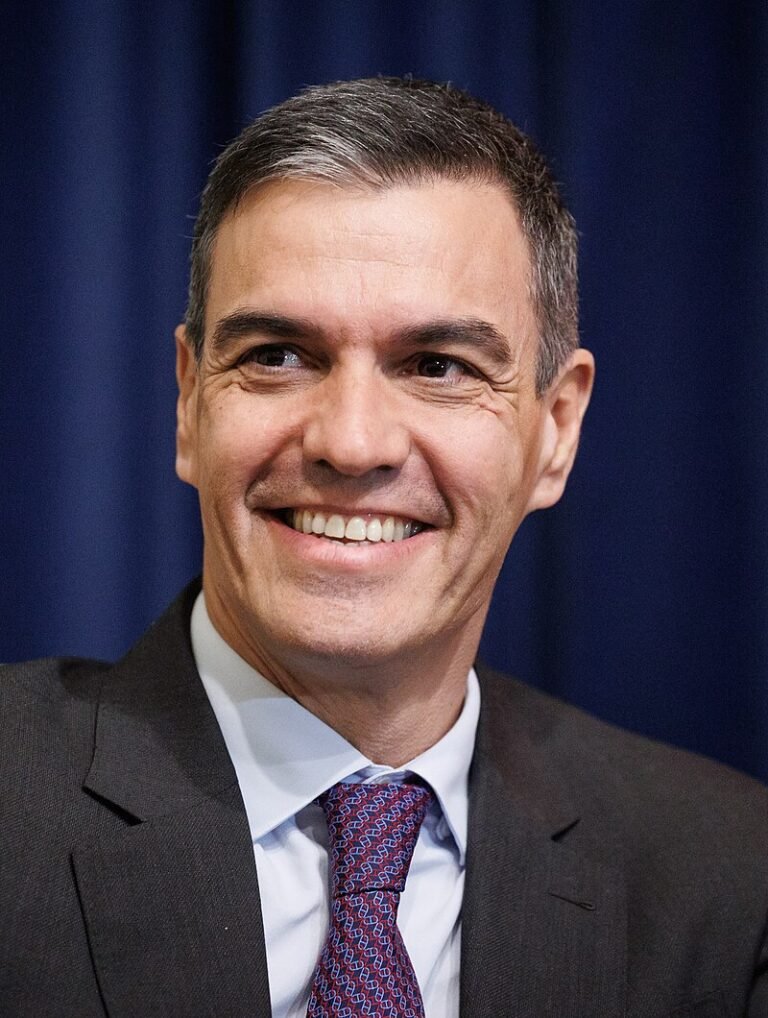Prime Minister Pedro Sánchez has been a central figure in Spanish politics since he assumed office in June 2018. Born in Madrid on February 29, 1972, Sánchez is an economist by training and has steadily risen through the ranks of the Spanish Socialist Workers’ Party (PSOE), the country’s main center-left political party. His political journey has been marked by both significant achievements and considerable challenges, reflecting Spain’s complex and often turbulent political landscape.
Pedro Sánchez first became leader of the PSOE in 2014, but after internal party conflicts, he lost that position in 2016. However, his political resilience was evident when he was re-elected as party leader in 2017. The following year, Sánchez led a successful vote of no confidence against the then-Prime Minister Mariano Rajoy, from the conservative People’s Party (PP), after a corruption scandal rocked Rajoy’s administration. This political maneuver propelled Sánchez into the prime ministership and set the stage for a new direction in Spanish governance.
As Prime Minister, Pedro Sánchez has pursued a progressive agenda aimed at addressing social inequality and strengthening public services. His government has increased the minimum wage, promoted gender equality, and expanded investment in renewable energy. These policies align with his broader vision for Spain as a more inclusive and sustainable society. Sánchez has also championed regional autonomy, especially in relation to Catalonia, where separatist movements have created ongoing tensions. His approach has sought a balance between dialogue and upholding national unity, a delicate task in Spain’s fragmented political environment.
Sánchez’s government is notable for being a coalition, working alongside Unidas Podemos and other smaller parties. This alliance has allowed for a broader left-wing representation in parliament but has also required constant negotiation and compromise. Political instability has been a recurring theme during Sánchez’s tenure, as opposition from the right-wing People’s Party and the far-right Vox party has complicated legislative efforts. Despite these obstacles, Sánchez’s administration has maintained a focus on social reforms and European integration.
One of the defining challenges of Pedro Sánchez’s time as Prime Minister has been managing the COVID-19 pandemic and its economic fallout. His government implemented strict lockdowns and health measures to contain the virus, while also rolling out economic support packages aimed at helping businesses and workers. The pandemic tested the resilience of Spain’s healthcare system and economy, and Sánchez’s leadership during this crisis has been closely scrutinized by both supporters and critics.
Immigration has also been a contentious issue under Sánchez’s government. While his administration has maintained policies in line with European Union standards, debates continue over border controls and migrant integration. This topic has been a point of friction with opposition parties, particularly the far-right Vox party, which has pushed for stricter immigration measures. Sánchez’s stance reflects a more moderate and humanitarian approach, aiming to balance security concerns with Spain’s commitments to human rights.
Internationally, Pedro Sánchez positions Spain as a proactive member of the European Union. His government supports deeper EU integration and has been involved in discussions on climate change, migration, and economic cooperation. Sánchez has also worked to strengthen Spain’s relationships with Latin American countries, emphasizing cultural and economic ties. His foreign policy reflects a commitment to multilateralism and Spain’s historical connections.
Despite his accomplishments, Sánchez faces ongoing political pressure. Corruption investigations involving members of his party have damaged public trust and fueled calls for early elections. Opposition parties argue that Sánchez’s government has struggled to maintain transparency and accountability. Meanwhile, Sánchez emphasizes the need for steady progress and insists that change requires time and patient governance.
Pedro Sánchez’s academic background is rooted in economics. He holds a degree from the Complutense University of Madrid and earned a Ph.D. focused on European Union economic policy. This education informs his pragmatic approach to economic and social issues. Sánchez is married with two daughters, balancing family life with his demanding political role.
The leadership of Prime Minister Pedro Sánchez continues to shape Spain’s future as the country navigates social reforms, political divides, and economic challenges. His efforts to build a more inclusive Spain while managing complex coalition politics highlight the evolving nature of governance in one of Europe’s largest democracies.







